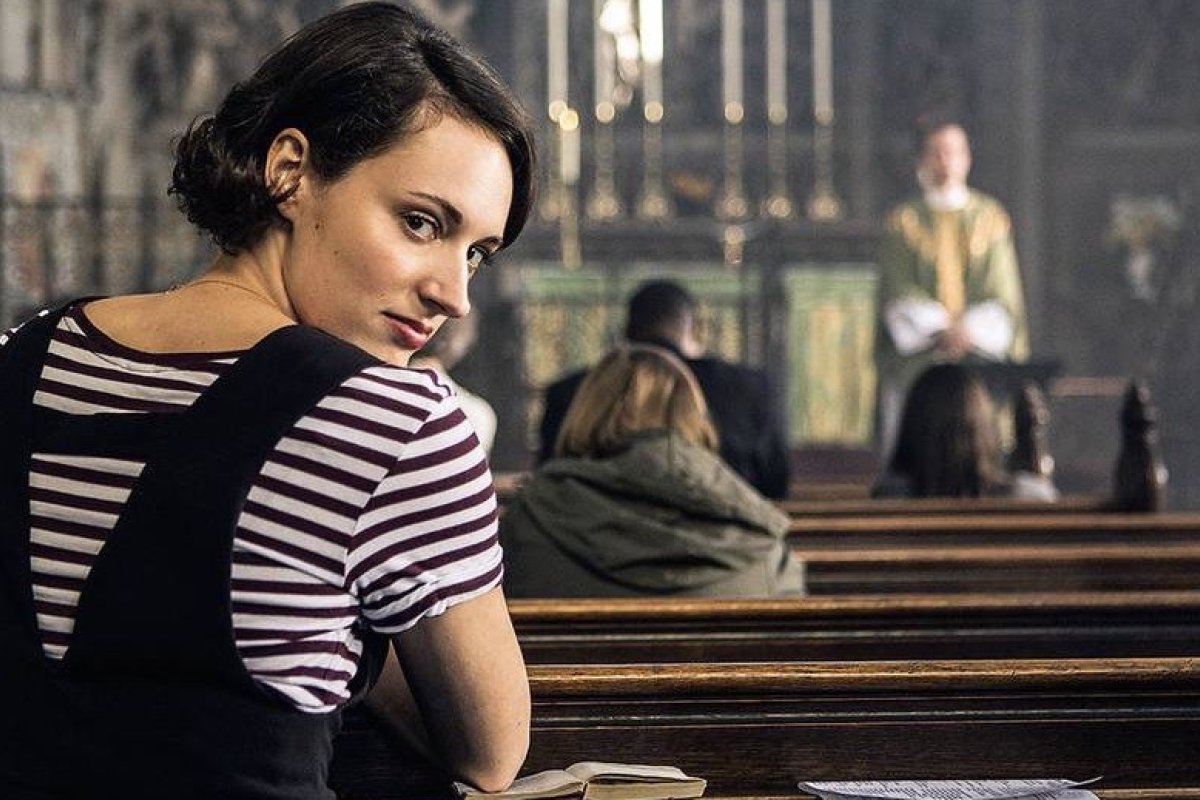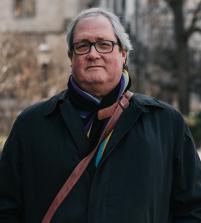
When a Vow Turns Out to be... a Vow: ‘Fleabag’
Exploring religion's leading role in the hit television series “Fleabag”
Fleabag—the funny, whip-smart, superbly written, beautifully acted creation of Phoebe Waller-Bridge—is about several things, but its major subject is religion, specified in the show by Roman Catholicism in twenty-first-century England. Commentary on the show has made a sensation of the “hot priest” who is a mainstay of its second season. Not widely acknowledged is that this is a new twist on a tradition, certainly in twentieth-century literature, of Catholic priests who prove transformative in spite of themselves (most famously, Graham Greene’s “whiskey priest” in The Power and the Glory, but flawed yet compelling clerics are featured in the novels and stories of Ignazio Silone, J. F. Powers, Flannery O’Connor, Walker Percy, and Shūsaku Endō, among others). Anyone familiar with this tradition will, however, recognize that Waller-Bridge is rethinking it to say something different, or perhaps better to refocus our lenses, about Catholicism and about religion. In Fleabag, the priest is not the center of the action but performs a supporting role to the eponymous heroine (we never learn her real name, or that of the priest) who is the one who really comes to recognize, and to articulate, what a promise made before God is. It is the layperson who reinforces the priest’s faith, not the other way around.
The road taken to this in Fleabag is tumultuous—both funny and at moments unsettling, even distressing. It starts immediately, in the first of the show’s two seasons, when we learn that Fleabag is a tortured soul: she suffers from the intensifying recognition, conveyed through flashbacks, that her failure in the most important friendship of her life has led, indirectly, to the friend’s death. Fleabag does her considerable best to displace this recognition. She takes recourse to sexual promiscuity and dismissive disregard for others, but (unlike Flannery O’Connor’s “Misfit”) she finds no pleasure in meanness.
Also, however—and much more important for how Fleabag works—her conscience does not only indict herself. Fleabag is troubled, but she is at the same time an acute, even steely observer who sees others precisely for what they are. What she sees is not pretty. The show’s most brilliantly realized convention is the series of asides to the camera (the “fourth wall”) that Fleabag offers: always hilarious, often mordant or rueful, they underscore both that no one but the viewer notices her, and that, while unnoticed, she is far from alone in her hypocrisy. Promises, even solemn promises like wedding vows, are compromised with abandon. This affords Fleabag zero consolation for her infidelity to her friend, but it also focuses her turmoil. We realize, as does Fleabag at least implicitly, that she ought to be, indeed can be better than she has been.
Season two—produced after a hiatus of over a year—affirms this realization. Fleabag is beginning, we see, to make and to honor some resolutions. She has revitalized the café she and her now-deceased friend opened together (including care of their pet guinea pig); she has adopted the practice of chastity; and if love of self remains a work in progress, love of neighbor, of necessity undertaken discreetly, has become a major priority. It’s important that all of this is shown to us, not told—not by Fleabag, and especially not by her family and friends, who seem not to notice. It’s also important that she finds no real pleasure in voluntary kindness.
Enter the priest, who first appears at a cacophonous family dinner and immediately distinguishes himself by asking Fleabag, at a moment when she is commenting to the camera, what she is doing. It’s an unmistakable meeting of the minds (and what really makes the priest “hot”): the promise Fleabag has continually kept throughout the show has been to the camera and the viewer. Up to this point, only the viewer has known and understood Fleabag for who she really is. To his distinguishing credit, the priest voluntarily “tunes in.”
The priest’s sincere pastoral concern and attunement to Fleabag are entirely new to her experience. She is shocked, and flattered. From here the story might appear to write itself. It doesn’t.
Fleabag goes on, not didactically but through sure-handedly vigilant plotting, to press the question of how to make a promise endure and fulfill a life. Do promises made under the aegis of religion fare better than others? This is the question that comes to integrate Fleabag’s life. The priest is unnervingly transparent about his struggles with his vows, at times refreshingly (he is remarkably articulate on what it means truly to give over one’s life to God), and at others disruptively and upsettingly (he is unable to sort his priestly duties from his personal attraction to Fleabag, even when he orchestrates her confession).
The show understands well an aspect of Catholicism that can fly under our radar these days. This is what it means to make a vow. Fleabag presents marriage and Holy Orders in the Roman Catholic understanding: as sacraments through which adult Catholics can vow a lifelong commitment before and to God. The fraught fact that choosing one excludes the other is clearer throughout their relationship to Fleabag than it is to the priest.
The show recognizes this through an astute mixture of comedy with solemnity. It walks the viewer right up to the possibility of lament, and then (literally) walks away from it. The key to this acknowledgement—the comic revision Fleabag offers in its rendition of the Catholic hierarchy—is that this movement is orchestrated not by the priest but by Fleabag. Having failed to honor her promise to her best friend, she is now able to acknowledge and, not incidentally, to affirm the priest’s vow to God.
Fleabag reminds us of what it means to make a solemn vow. In doing so, the show invites us to consider the powers and limits of religion to help people make enduring promises that shape and fulfill a life. If Fleabag does not fully resolve this consideration, its nervy verve in saying something theological while documenting a world so avowedly flippant to theology is a compelling gesture in the right direction.
Sightings is edited by Joel Brown, a PhD Candidate in Religions in the Americas at the Divinity School. Sign up here to receive Sightings via email. You can also follow us on Facebook and Twitter. The views and opinions expressed in this article are those of the author and do not necessarily reflect the position of the Marty Center or its editor.
Image: Phoebe Waller-Bridge as “Fleabag” in Fleabag Season Two. (Photo: BBC/Amazon Studios)


